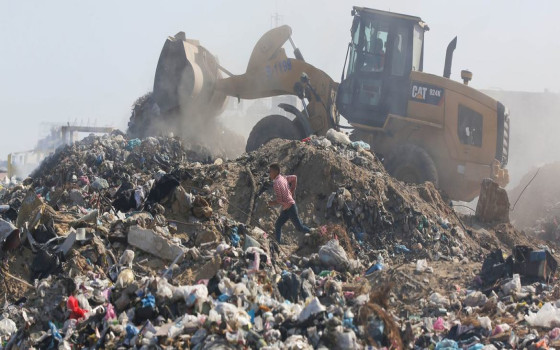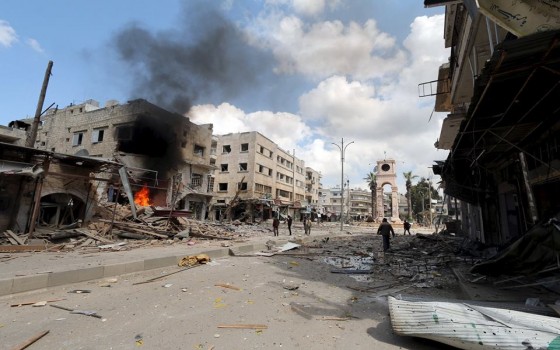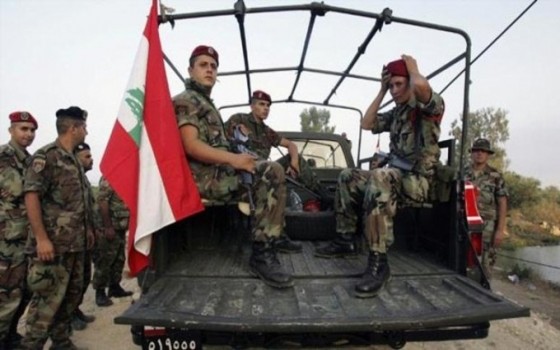
Gaza faces the risk of worsening the spread of infectious diseases due to water shortages and the absence of waste management means.. and the peace process coordinator continues his engagement with the concerned parties to support stability efforts in the region

- Europe and Arabs
- Saturday , 3 August 2024 10:5 AM GMT
Gaza - New York: Europe and the Arabs
UN agencies working in the humanitarian field have warned of the increasing risk of the spread of infectious diseases throughout the Gaza Strip, amid chronic water scarcity and the absence of the necessary means to manage waste and sanitation properly. According to the UN News Bulletin, a copy of which we received this morning, Saturday,
The United Nations Relief and Works Agency for Palestine Refugees (UNRWA) reported that about 40,000 cases of hepatitis A have been recorded in its shelters and health centers since October. At the same time, health partners are preparing for the worst-case scenario of a polio outbreak.
The World Health Organization said earlier this week that efforts are underway to obtain vaccines. However, as with food and medical supplies, simply transporting vaccines across borders is not enough. The organization called for a ceasefire, and at least opening roads and providing safe access in order to allow partners to reach everyone in Gaza with the necessary vaccinations. Meanwhile, the Office for the Coordination of Humanitarian Affairs (OCHA) reported ongoing obstacles to humanitarian access to Gaza, including ongoing hostilities, unexploded ordnance, damaged and impassable roads, attacks on aid convoys, lack of public order and safety, the closure of the Rafah crossing, and restrictions imposed by the Israeli authorities on the entry of some humanitarian supplies.
These factors continue to significantly impede the entry of aid into Gaza and the delivery of essential assistance and services to hundreds of thousands of people across the Strip, the UN office said.
OCHA explained that of the 157 relief missions planned to northern Gaza last month, only 67 were facilitated by the Israeli authorities. The rest were either rejected, obstructed or cancelled for security, logistical or operational reasons.
On the other hand, the UN Special Coordinator for the Middle East Peace Process, Tor Wennesland, stressed the need for urgent and coordinated action to prevent further deterioration of the situation, which he said poses a “major threat to regional stability.” In a statement issued on Friday, Mr. Wennesland said that he had engaged in recent days with the relevant parties and Member States in the region, including Lebanon, Egypt and Qatar, to support regional de-escalation. He explained that he had stressed the urgent need to address the growing risk of dangerous escalation, noting that he had discussed with the parties ongoing mediation efforts to prevent the conflict from spreading.
“It is of utmost importance that we act decisively and collectively to address the immediate threats and lay the foundation for a lasting peace,” Mr. Wennesland said.
He stressed that he would continue his active engagement with all relevant parties to support peace and stability in the region.
In a related development, the Under-Secretary-General for Peacekeeping Operations, Jean-Pierre Lacroix, stressed the need for de-escalation and a return to the cessation of hostilities along the Blue Line. This came in a statement issued on Friday at the end of a visit to Lebanon.
Lacroix, during his meetings with senior Lebanese officials earlier this week, highlighted the risk of a wider conflagration, calling for maximum restraint and a cessation of the ongoing intense exchange of fire across the Blue Line.
Jean-Pierre Lacroix also met with members of the diplomatic corps, as well as UN and peacekeeping officials. During his visit to the headquarters of the United Nations Interim Force in Lebanon (UNIFIL) in Naqoura, in the south of the country, Lacroix received a briefing from UNIFIL Head of Mission and Force Commander Major General Aroldo Lazaro on the latest developments on the situation in the area and along the Blue Line, and was briefed on the Mission’s tireless efforts to prevent further escalation.












No Comments Found